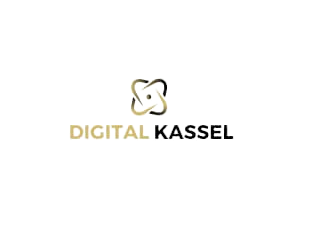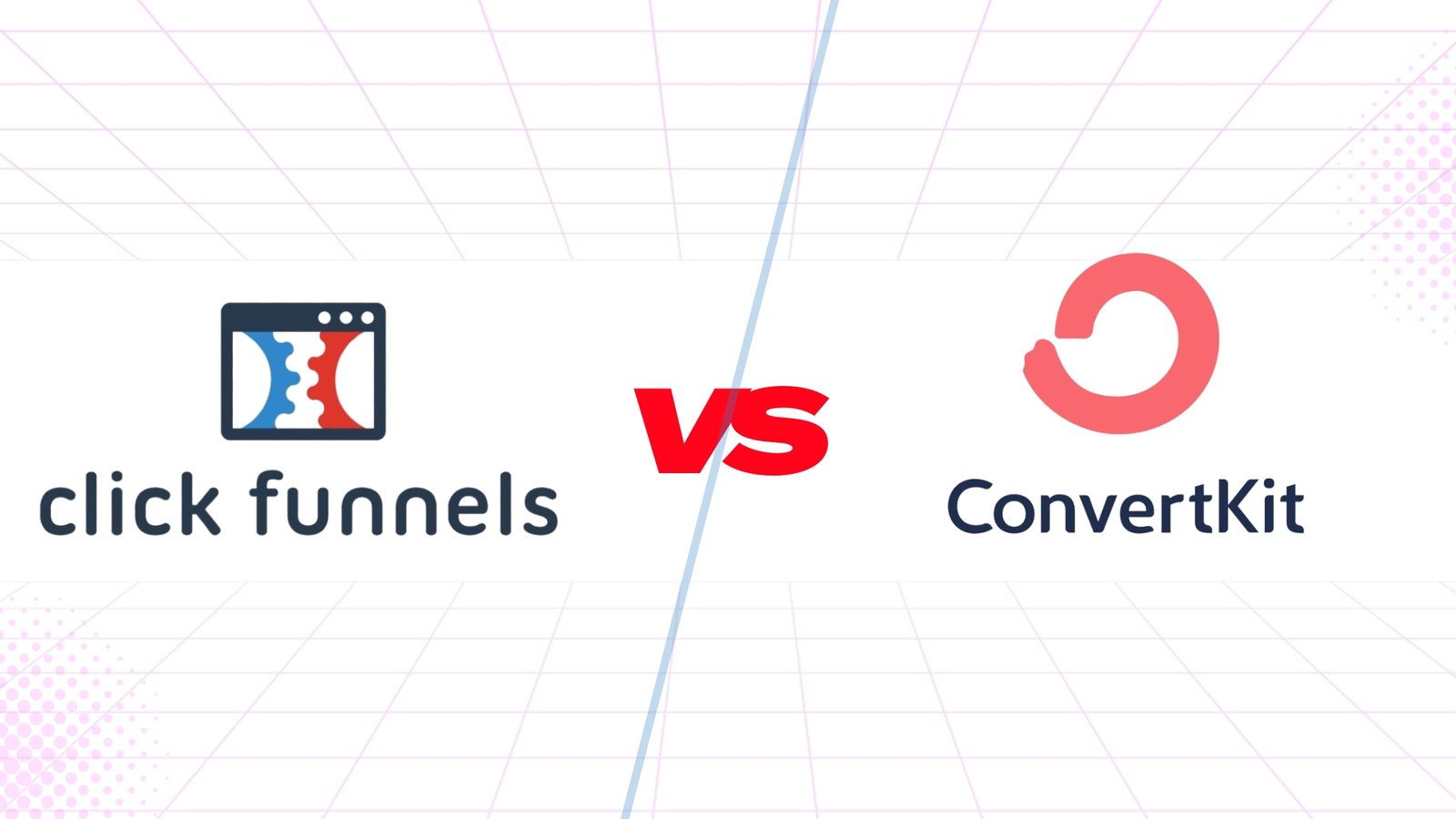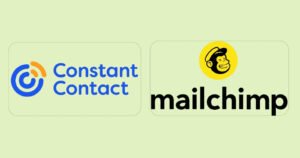In the evolving digital landscape, selecting the appropriate marketing tool is pivotal for the flourishing of your online venture. This detailed post undertakes an in-depth examination of ClickFunnels versus ConvertKit, two premier platforms in the realm of online marketing, delving into their functionalities, user-friendliness, pricing structures, and client support frameworks. This comparison will equip you with the necessary insights to determine the platform that best aligns with your marketing objectives and needs. Whether you are an experienced marketer or embarking on your marketing journey, grasping the subtle distinctions between ClickFunnels and ConvertKit is essential for making a well-informed choice that resonates with your business aspirations.
Table of Contents
Ease of Use: ClickFunnels vs. ConvertKit
The simplicity of an email marketing or sales funnel platform is a paramount consideration for both businesses and individual users. This section contrasts the user experience and straightforwardness of the interface between ClickFunnels and ConvertKit, guiding you to identify the platform that better suits your requirements.
ClickFunnels Ease of Use:
Renowned for user-friendliness, ClickFunnels caters primarily to those needing more extensive technical expertise. It features a drag-and-drop interface, simplifying the creation of sales funnels and landing pages. The platform offers an array of pre-designed templates, enabling customization without the need for coding knowledge.
Nevertheless, newcomers might initially find the platform’s rich features needing to be more manageable. To mitigate this, ClickFunnels provides extensive educational resources, including tutorials, guides, and webinars, facilitating a smoother learning journey.
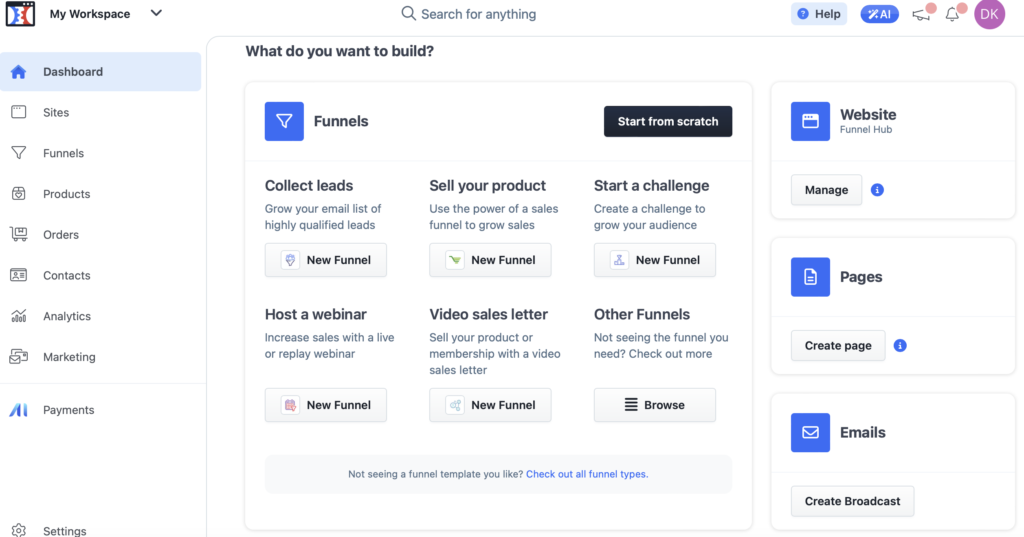
ConvertKit Ease of Use:
Conversely, ConvertKit has been meticulously crafted with efficiency and simplicity. It explicitly targets bloggers, online creators, and small enterprises. The platform’s interface is clean and uncluttered, ensuring new users can navigate it easily.
Creating emails in ConvertKit is streamlined, emphasizing text-based communication, thus resonating with content creators. Although it provides fewer customization options than ClickFunnels, this simplicity facilitates quicker email composition and distribution. ConvertKit offers rich educational content and exemplary customer support for those seeking additional guidance.
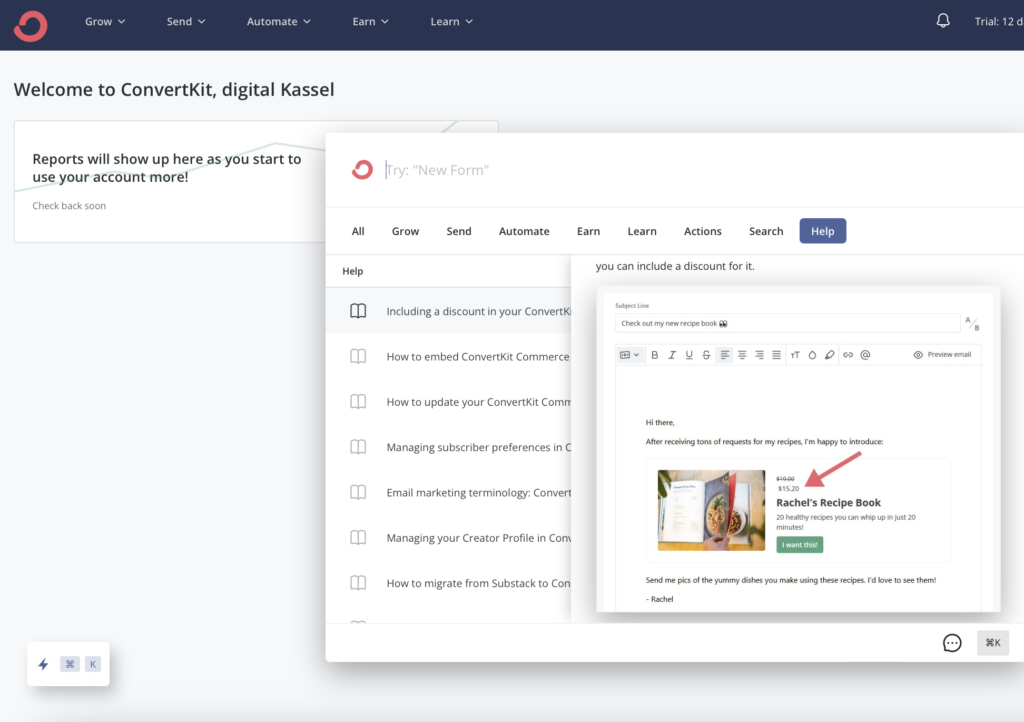
Features and Capabilities: ClickFunnels vs. ConvertKit
When deciding between ClickFunnels and ConvertKit, comprehending the unique features and capabilities each offers is crucial to ensure your chosen tool aligns with your business objectives and marketing strategies.
ClickFunnels Features and Capabilities:
ClickFunnels is primarily a sales funnel builder meticulously designed to shepherd visitors through the purchasing process, transforming prospects into actual customers. Its key attributes include:
- Sales Funnel Creation: The platform supplies an array of pre-constructed funnel templates catering to diverse business necessities, such as lead capture funnels, sales funnels, and event funnels. These templates are adaptable to meet specific needs.
- Landing Pages: ClickFunnels enables the crafting of visually appealing landing pages through a drag-and-drop editor, eliminating the need for coding expertise. This functionality allows for the swift and effortless establishment and styling of pages that align with your brand.
- A/B Testing: The provision of A/B testing capabilities by ClickFunnels permits the comparison of different funnel and landing page versions to ascertain which yields superior conversion rates.
- Integrations: ClickFunnels amplifies its utility by supporting various integrations with third-party applications and services, including email marketing tools, payment gateways, and webinar platforms.
- Membership Sites and E-commerce: Using ClickFunnels, you can construct membership sites and directly sell products through your funnels, paving the way for content monetization and product sales.
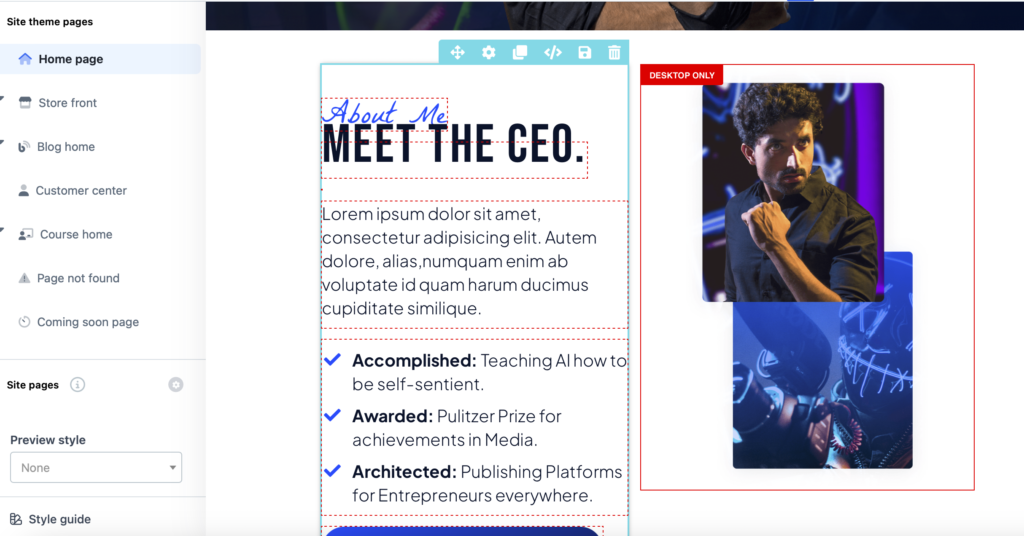
ConvertKit Features and Capabilities:
In contrast, ConvertKit is an email marketing platform tailor-made for creators and online entrepreneurs. Its functionalities are designed to assist in the expansion and effective management of your email list while fostering meaningful interactions with your audience:
- Email Automation: ConvertKit shines in email automation, featuring a visual automation builder that simplifies the creation of automated email sequences. This attribute is particularly advantageous for lead nurturing and engagement enhancement.
- Segmentation and Tagging: ConvertKit enables sophisticated segmentation of your email list based on subscriber behaviors, interests, and interactions, allowing for highly personalized and targeted email campaigns.
- Landing Pages and Forms: The platform offers a variety of customizable forms and landing page templates, facilitating effortless lead capture and email list growth.
- Email Broadcasting: ConvertKit
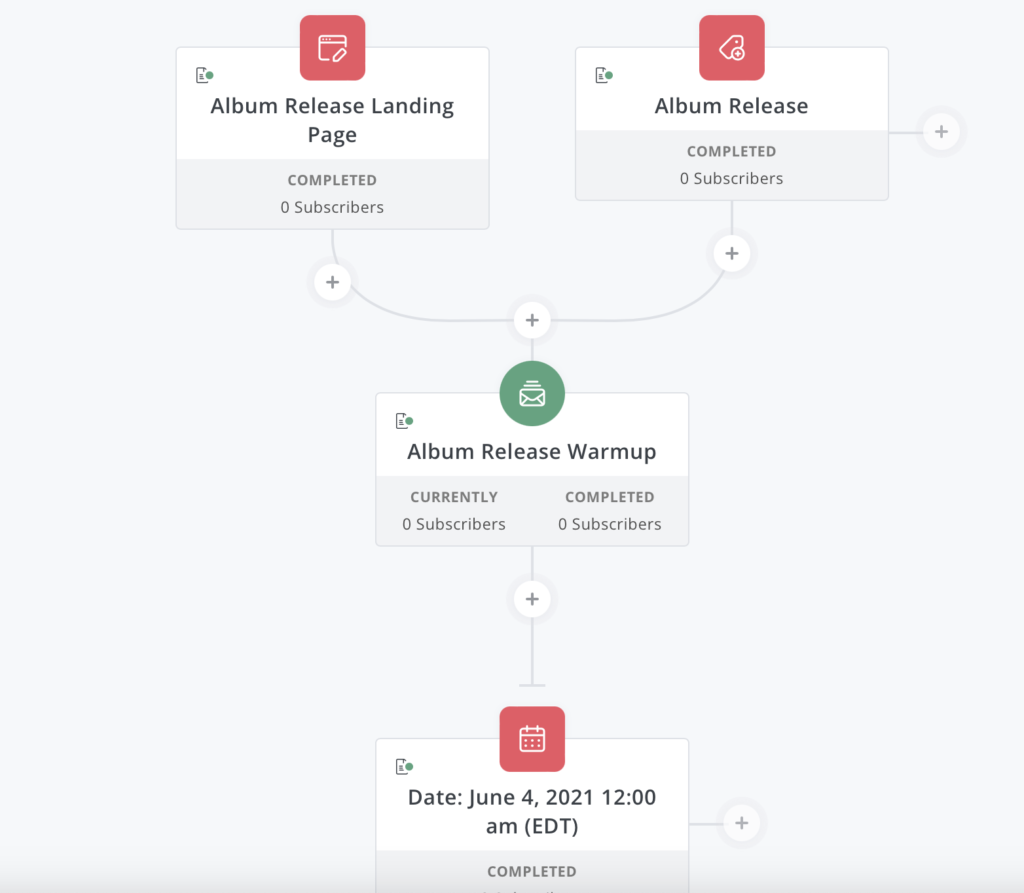
Pricing and Plans Analysis: ClickFunnels vs. ConvertKit
Selecting the right marketing tool requires a clear understanding of the investment involved. Here, we dissect the pricing structures and subscription tiers of ClickFunnels and ConvertKit, providing insights to help you identify which service delivers the optimal value aligned with your marketing objectives.
ClickFunnels Pricing Overview:
ClickFunnels has engineered a diverse range of pricing options to cater to the varied needs and budgets of different enterprises:
- Basic Plan: Tailored for novices or small-scale ventures, this introductory package offers essential funnel-building tools, a limited array of funnels and pages, and fundamental features to kickstart and sustain a burgeoning funnel project.
- Platinum Plan: Geared towards expanding businesses, this enhanced tier provides a broader selection of funnels and pages and access to more sophisticated functionalities such as email autoresponders and affiliate programs.
- Two Comma ClubX Plan: Exclusively designed for large enterprises or advanced marketers, this top-tier plan allows unlimited access to all funnel types, pages, and advanced follow-up features, accompanied by elite support and exclusive benefits.
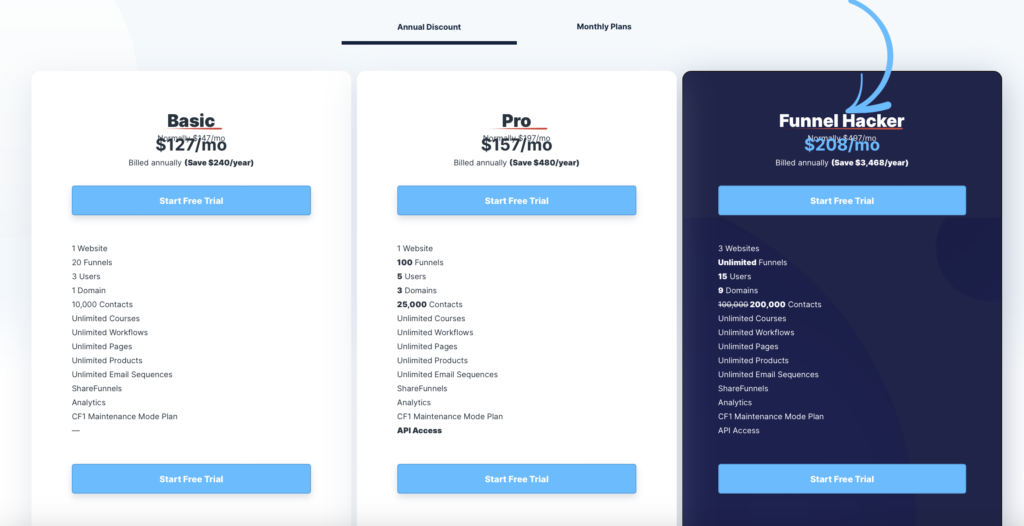
ConvertKit Pricing Structure:
ConvertKit offers pricing plans tailored predominantly to content creators and smaller enterprises, with the cost scaled according to your subscriber base:
- Free Plan: This is an ideal starting point for beginners. It provides up to a specific subscriber count with fundamental email capabilities, landing pages, and form access, supporting initial audience development efforts.
- Creator Plan: As your subscriber list expands, this plan facilitates growth with enhanced features such as advanced automation and integration options tailored for evolving audience engagement.
- Creator Pro Plan: For seasoned professionals with extensive lists, this premium option includes all functionalities of the Creator Plan plus exclusive tools like newsletter referral systems and advanced analytics, catering to intricate marketing needs.
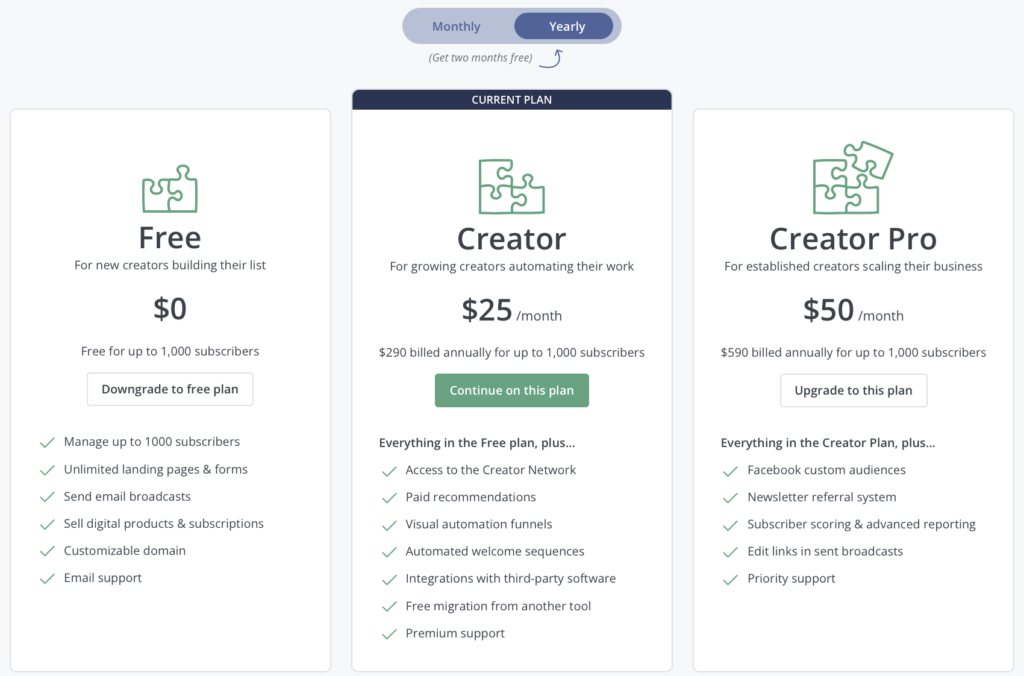
In-depth Comparison: Pros and Cons of ClickFunnels vs. ConvertKit
Deciding between ClickFunnels and ConvertKit necessitates a comprehensive understanding of each platform’s strengths and weaknesses in your digital marketing needs.
Pros of ClickFunnels:
- Complete Funnel Solution: Mastery in crafting detailed and impactful sales funnels, ideal for navigating customers effectively through the purchase journey.
- Integrated Marketing Suite: A one-stop platform offering a blend of marketing tools, including landing page creation, email marketing solutions, and more, for streamlined marketing efforts.
- Conversion Optimization: This feature was built to maximize conversions through features such as A/B testing and strategic upsell opportunities.
- Extensive Support Network: A vibrant community backed by a wealth of educational resources helps you maximize the potential of your funnel strategies.
Cons of ClickFunnels:
- Investment: Higher pricing can challenge startups or businesses with tighter budgets.
- Complexity: The breadth of features may introduce a steep learning curve for novices.
- Email Marketing Limitations: While available, the email marketing functionalities might not be as exhaustive as those of dedicated platforms like ConvertKit.
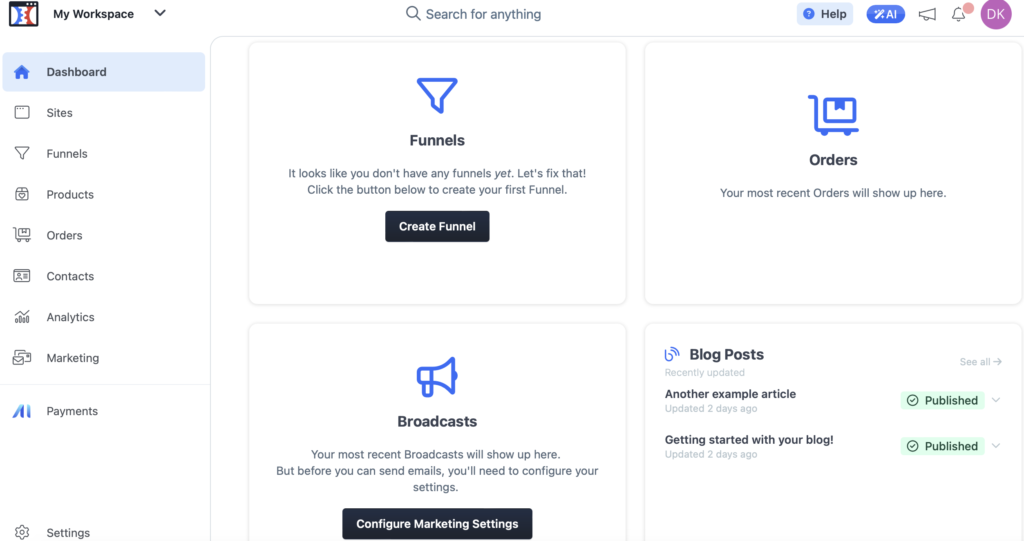
Pros of ConvertKit:
- Creator-Centric: Designed with content creators and online entrepreneurs in mind, enhancing relevance and application.
- Simplicity and Usability: Renowned for an intuitive interface that simplifies email campaign management and execution.
- Advanced Email Automation: Offers robust automation and segmentation capabilities for tailored and impactful subscriber engagement.
- Accessible Entry-Level Plan: A free tier accommodating new businesses or creators, making initial growth efforts more manageable.
Cons of ConvertKit:
- Sales Funnel Focus: Lacks the comprehensive sales funnel approach inherent to ClickFunnels, which might be a downside for funnel-centric strategies.
- Customization Limitations: While efficient, the design and template options could be more versatile thanbroader platform offerings.
- Scalability Cost: The pricing model, based on subscriber count, can escalate as your audience grows, impacting long-term budget planning.
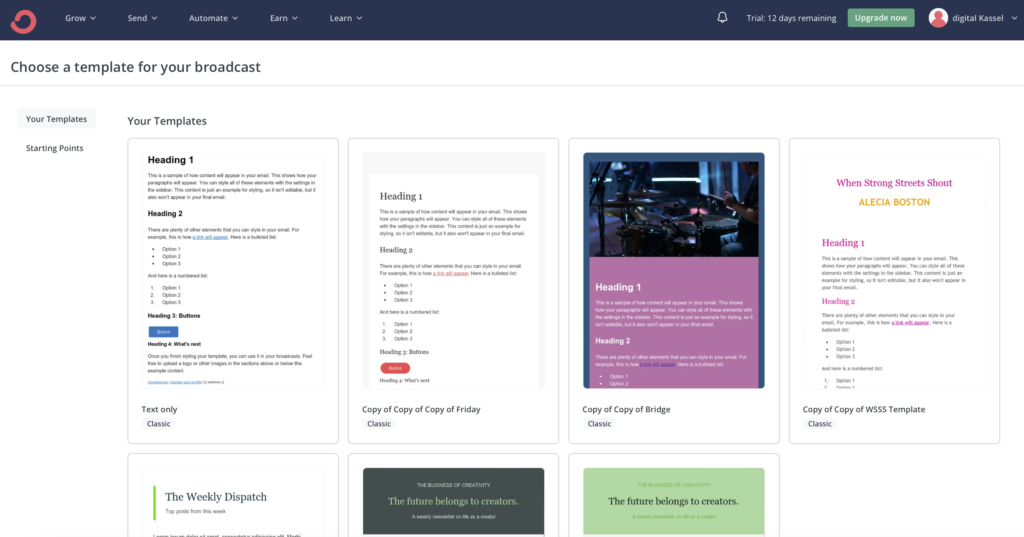
Customer Support and Learning Resources: A Comparative Look at ClickFunnels and ConvertKit
The caliber of customer service and educational assets a platform offers can profoundly influence your user experience and your platform’s success rate. In this analysis, we evaluate the support structures and resource availability of ClickFunnels and ConvertKit to give you a clear perspective on what to anticipate from each service.
Support and Resources at ClickFunnels:
ClickFunnels is renowned for its broad-ranging support and educational provisions, designed to maximize user engagement and platform proficiency.
- Customer Support Channels: ClickFunnels extends a variety of support avenues, including comprehensive email assistance, real-time live chat, and an efficient ticketing system. Priority support ensures expedited response times for users subscribing to the Platinum and Two Comma ClubX tiers.
- Educational Assets: Users have access to an abundant library of learning materials. This encompasses everything from the insightful ClickFunnels blog and a detailed knowledge base to instructive video tutorials and the exclusive FunnelFlix platform, hosting many marketing and funnel-building courses.
- Community Engagement: The platform fosters a dynamic community, which is evident in its active Facebook group. In this group, users can exchange tips, seek advice, and share their experiences, fostering a supportive learning environment.
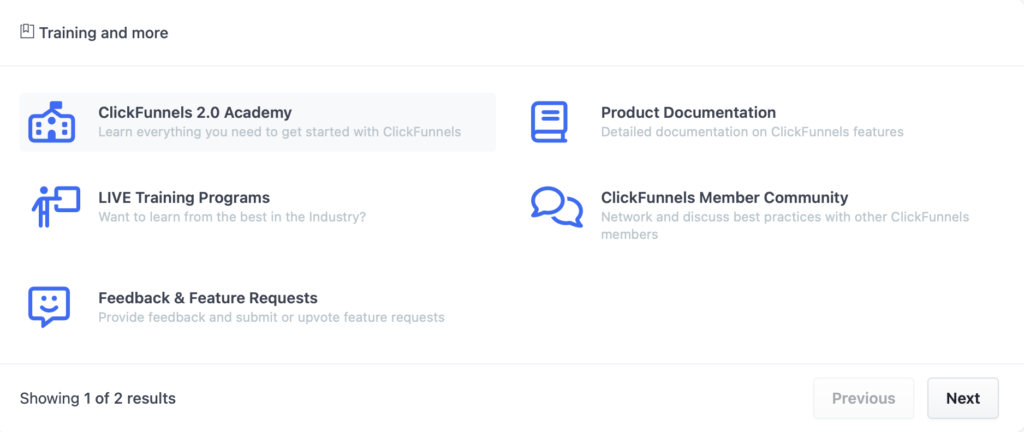
Support and Resources at ConvertKit:
ConvertKit approaches customer service and resources with a tailored focus, catering predominantly to the unique needs of creators and digital marketers.
- Customer Assistance: ConvertKit emphasizes personalized support through direct email and live chat channels and is praised for its responsive and helpful customer service team. Enhanced support options may be available with advanced plan subscriptions.
- Creator-Centric Resources: The platform stands out for its creator-oriented educational materials, featuring an extensive knowledge base, easy-to-follow video tutorials, engaging webinars, and a blog brimming with practical marketing advice for writers, bloggers, and online entrepreneurs.
- Creator Community Initiatives: ConvertKit nurtures a vibrant ‘ConvertKit Community,‘ a dedicated space for users to network, exchange ideas, and grow together. This is supplemented by regular workshops and event invitations, encouraging peer-to-peer learning and collaboration.
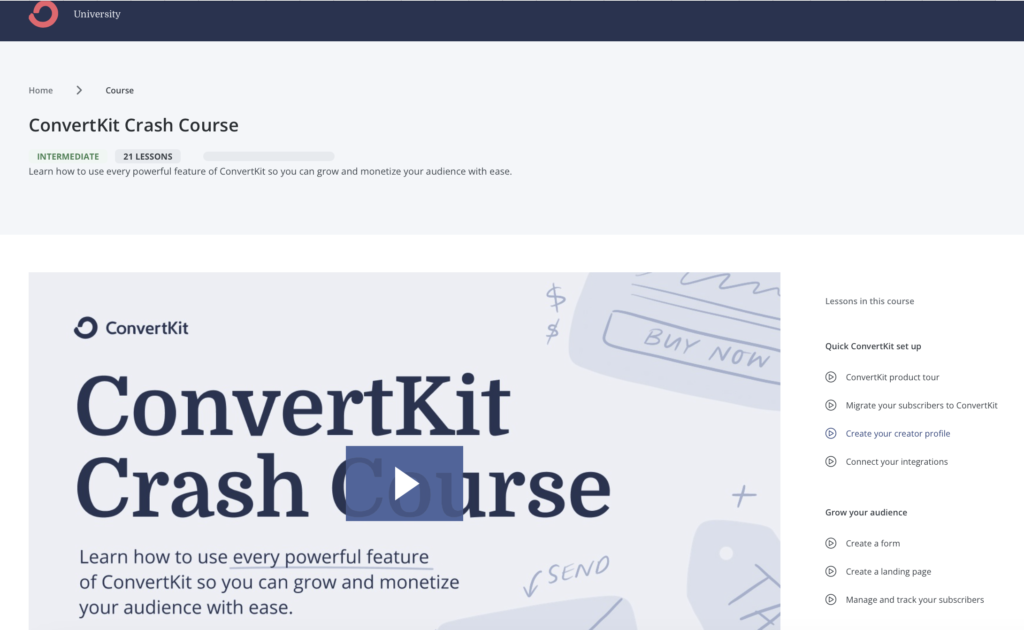
In Summary: Navigating the Choices between ClickFunnels and ConvertKit
Choosing between ClickFunnels and ConvertKit transcends simple feature and price comparisons; it’s about aligning with the service that best suits your business aspirations, marketing needs, and personal work style. Throughout this guide, we’ve unpacked the layers from usability and functionalities to financial commitments, support, and educational provisions offered by ClickFunnels and ConvertKit.
ClickFunnels emerges as a comprehensive, all-encompassing solution. It is ideal for businesses concentrating on constructing and refining sales funnels to streamline the consumer journey and amplify conversion rates. The rich educational content and active community support render it a formidable choice for marketers seeking to elevate their funnel strategies.
Conversely, ConvertKit presents a tailored approach that is perfect for content creators and digital entrepreneurs who aim to cultivate and engage their email lists effectively. Its user-friendly nature and potent segmentation and automation capabilities make it an excellent choice for individuals who prioritize direct communication and personalization in their marketing efforts.
Ultimately, your selection should mirror your specific requirements and goals:
- Choose ClickFunnels if your marketing strategy heavily relies on elaborate funnel-building and you value integrating diverse marketing tools into one cohesive suite.
- Opt for ConvertKit if you focus predominantly on email marketing and appreciate streamlined, creator-focused functionalities alongside active community interaction.
Regardless of your choice, both platforms provide distinctive advantages. Your decision may also be swayed by factors such as your technical comfort level, budget limitations, and long-term business strategies. We recommend leveraging free trials or demonstrations offered by both services for a practical experience before finalizing your decision.
By critically assessing the strengths and weaknesses of ClickFunnels and ConvertKit, you position yourself to select a marketing tool that amplifies your current promotional efforts and supports scalable growth and success in the digital space.
